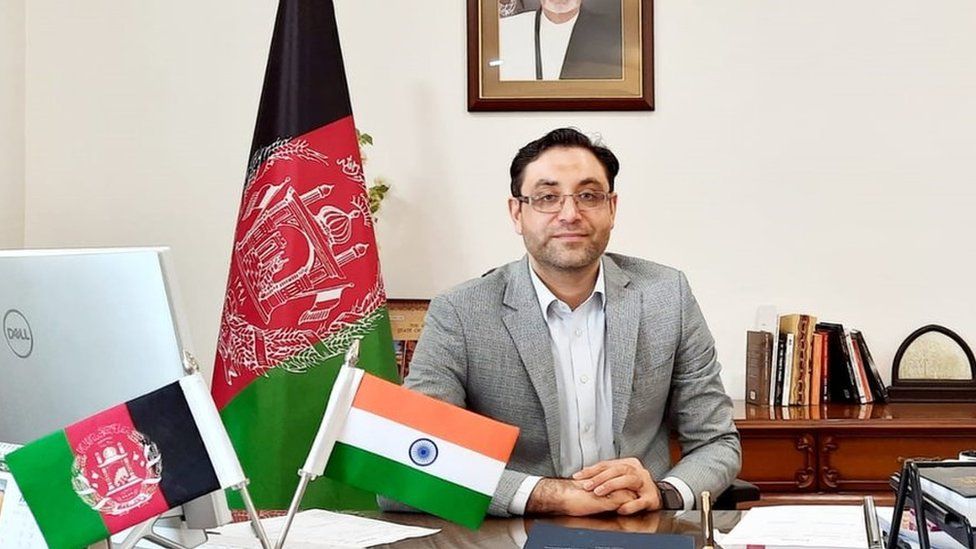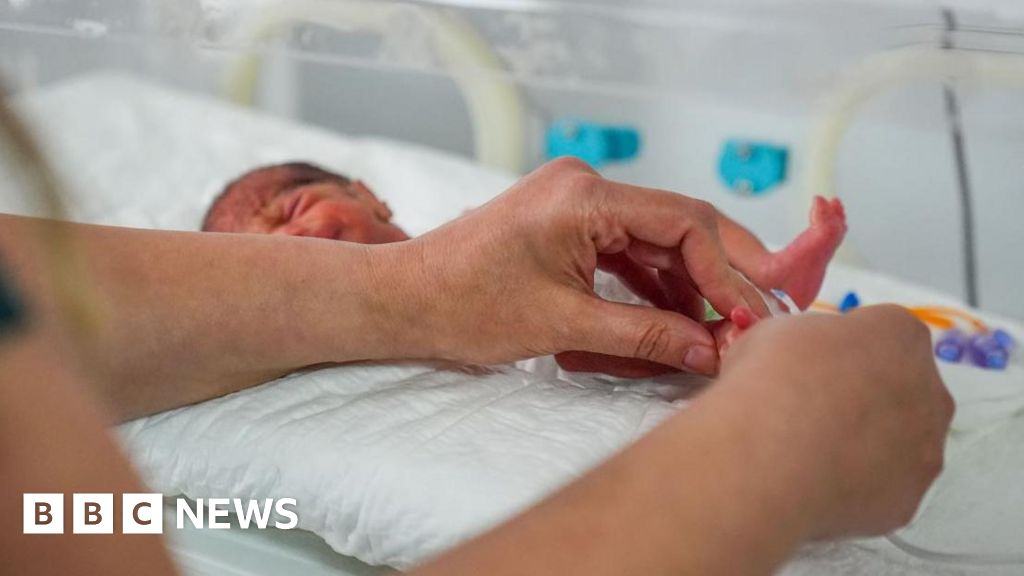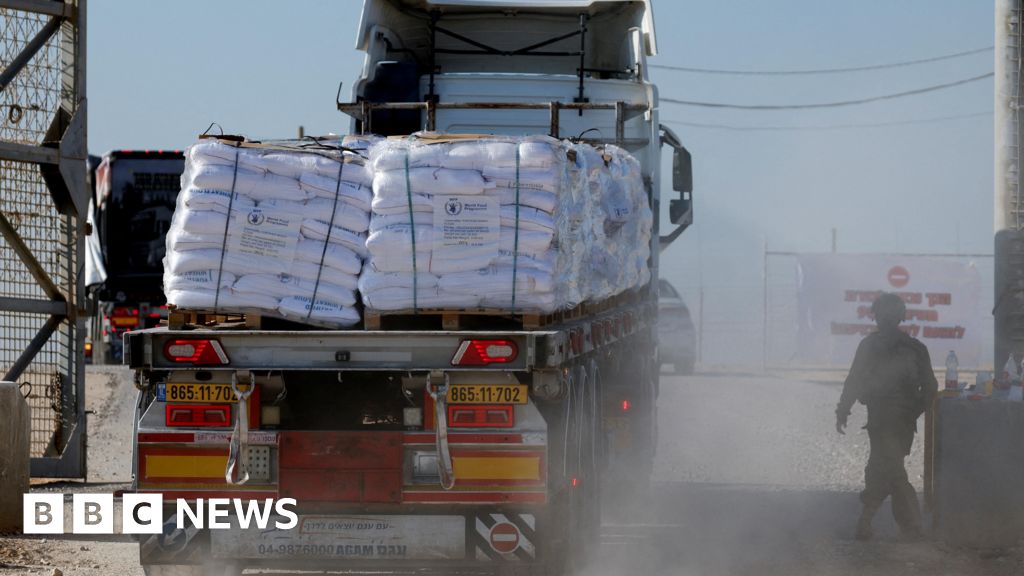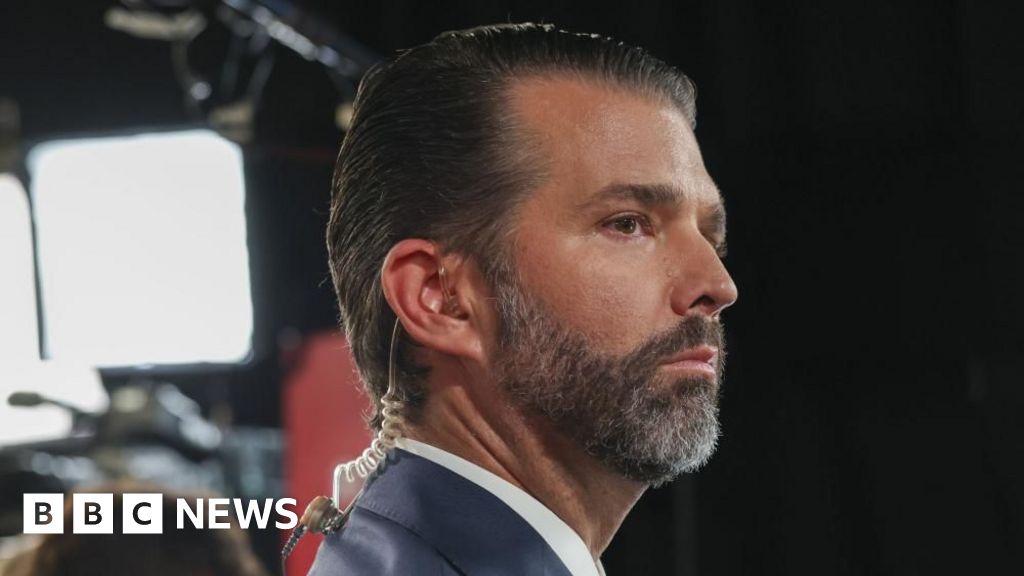ARTICLE AD BOX

Farid Mamundzay is Afghanistan's ambassador to India
The Taliban is trying to establish its control over Afghanistan's institutions, but there is a big grey area. Most of the country's 70 or so diplomatic missions still functioning are doing so independently of the hardline regime - which isn't recognised by other countries - and without any direct funding from Kabul. The BBC's Zubair Ahmed reports from Delhi.
Visitors to the Afghan embassy in India's capital - housed in a sprawling compound in the heart of the city's diplomatic enclave - are greeted by a photograph of former president Ashraf Ghani when they enter the building. Mr Ghani fled Afghanistan last August as the Taliban closed in on the capital after the collapse of his government, which had been backed by the West.
His photo also hangs on the wall of ambassador Farid Mamundzay's office, which still has the black, red and green tricolour flag of the republic Mr Ghani used to head.
"We have little co-ordination with the Taliban," says Mr Mamundzay, whose staff continue to carry out functions like issuing visas and passports in the name of the republic they were appointed to serve.
In the 10 months since they took power, the Taliban have sent ambassadors to only four countries: Russia, Pakistan, China and Turkmenistan. But even these countries haven't accorded formal diplomatic recognition to Afghanistan's new rulers.
Afghanistan: The basics
- The Taliban run the country: The hardline Islamists took over Afghanistan last year, almost 20 years after being ousted by a US-led military coalition
- There's a food crisis: More than a third of people can't meet basic needs and the economy is struggling, as foreign aid and cash dried up when the Taliban took power
- Women's rights are restricted: They have been ordered to cover their faces in public and teenage girls have not been allowed to go to school
The Indian government has allowed the embassy in Delhi to function as an extension of the previous government, like it did during the Taliban's last stint in power between 1996 and 2001 - the embassy then continued to represent the government of former president Burhanuddin Rabbani.
Despite the change in who holds power in Kabul, Mr Mamundzay says the embassy still follows the rules and policies of the old government that appointed him.
"We are still representing the former republic, our former democracy. We are not taking orders from [the Taliban]," he says.
Image source, EPA
Image caption,The Taliban took complete control of Afghanistan last year
While the Taliban want to take over the functioning of Afghan missions around the world, they lack the money to do so. Afghanistan's economy has been in freefall since they seized power - foreign aid dried up and the country's assets were frozen, as the international community tied funds to progress on issues like human rights and the treatment of women.
Mr Mamundzay says the Delhi embassy and most of its counterparts in other countries have said they will only accept the regime's control on one condition - the Taliban must first form a national government which is inclusive, diverse and gives fundamental rights to women.
Immediately after coming to power, the Taliban had indicated it might adopt a more flexible approach to women's rights. But over the past few months, it has adopted several hardline measures, including requiring women to wear face veils.
Last week, after more than 1,000 people were killed in the deadliest earthquake to hit Afghanistan in two decades, dozens of Afghan expatriates huddled together in the embassy's garden in Delhi - some had come to get their paperwork done, others were anxious for news from home.
Mr Mamundzay says that his embassy continues to issue and renew visas and passports in the name of the former republic - which is, crucially, honoured by the Taliban authorities.
"[Even] leaders of the Taliban travel on the passports of the republic," he says, as countries don't recognise passports and other documents issued by the Taliban.
While the number of people travelling from India to Afghanistan has significantly reduced since the Taliban took over, many still make the trip to visit their families or get their documents in place.
The Afghan embassy in Delhi estimates that around 100,000 Afghan citizens live in India - of these, the ambassador says, some 30,000-35,000 are Afghan refugees and nearly 15,000 are students.
The embassy and the consulates in the cities of Hyderabad and Mumbai don't function in a vacuum - they are in touch with the consular division of the foreign ministry in Kabul every day over paperwork for Afghan citizens, including marriage and divorce certificates, and issuance of birth and death certificates.
Image source, Getty Images
Image caption,An Afghan presenter prepares to cover her face with a veil before a live TV broadcast in May
Another issue that requires close co-ordination with the Taliban is humanitarian aid.
"India has sent aid to Kabul in the aftermath of the earthquake. We were required to co-ordinate with the foreign office in Kabul," he says.
Funding crunch
Mr Mamundzay says the revenues of the Afghan missions in India have dropped significantly since the Ghani government was ousted.
"There was a time when we had 10-15 weekly flights to Kabul from here. There was a lot of trade. We were fully involved and busy. That's not there any more. Revenues have dropped by 80%," he says.
The situation is similar in other countries as well. In May, the United States took control of the Afghanistan embassy in Washington DC and its consulates in New York and Los Angeles because the missions were facing "severe financial constraints that made continued operations unsustainable".
In India, Mr Mamundzay and his staff are counting every penny to keep the missions going.
In Delhi, the embassy owns the main building and staff quarters, so it saves on the rent. They also earn money through consular work, such as visa fees.
He adds that the 21 Afghan diplomats in Delhi, Mumbai and Hyderabad have taken significant pay cuts.
"We are working for our motherland, for democracy. This is a small price to pay."
You may also be interested in:
Yalda Hakim returns to Afghanistan to find out what the country is like under Taliban rule.

 2 years ago
47
2 years ago
47








 English (US)
English (US)